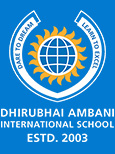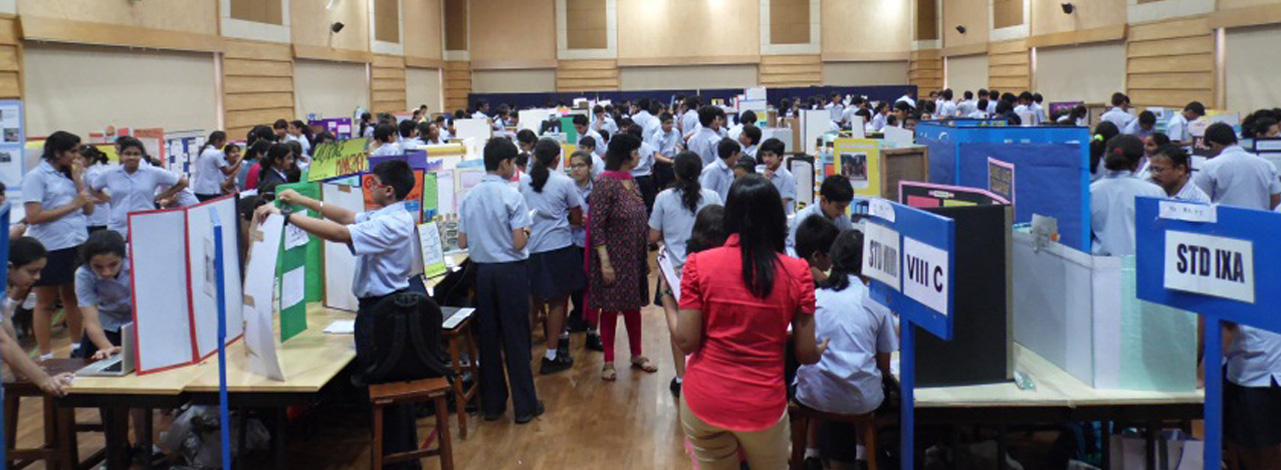DAIS Science Fair 2013
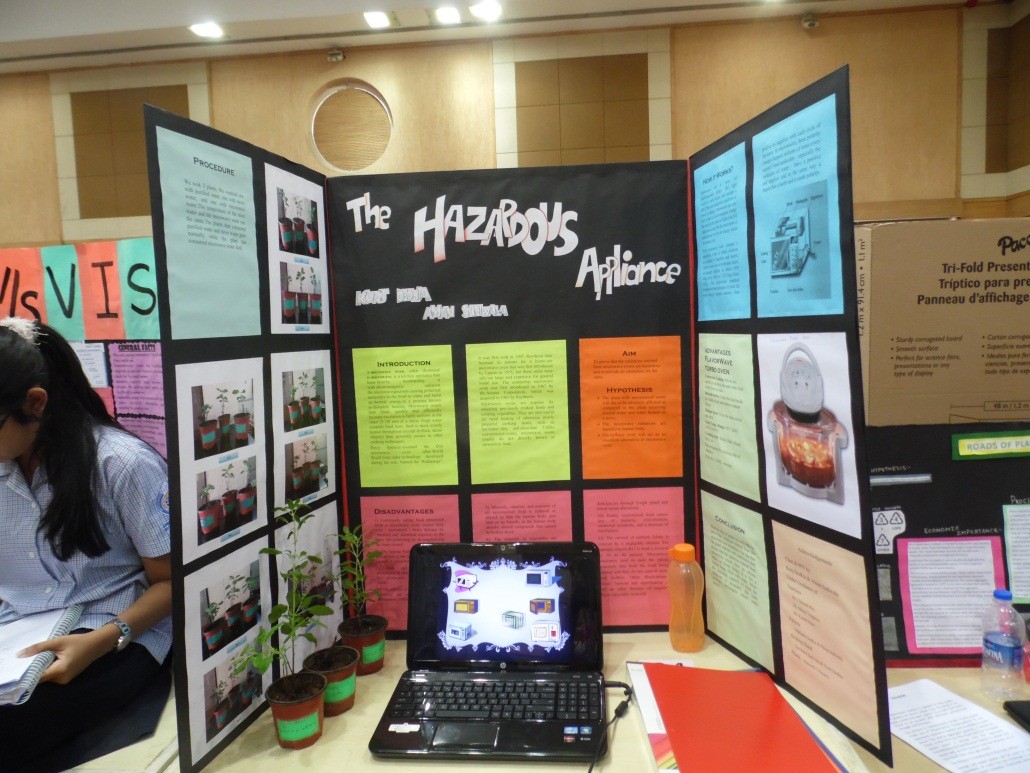
Everyone has, at some point of their life, experienced a desire to know something that they do not already know the answer to. This can be a complex question such as, ‘Can changes in diet and upbringing compensate for genetic abnormalities?’ or even something as innocent as a child saying, ‘How come humans can’t flap their wings and fly like birds?’ The purpose of a science project is to form a hypothesis based on the aforementioned ‘research question’ and then do research and perform experiments to prove the hypothesis. This data is collected and represented along with a conclusion and the result of the project.
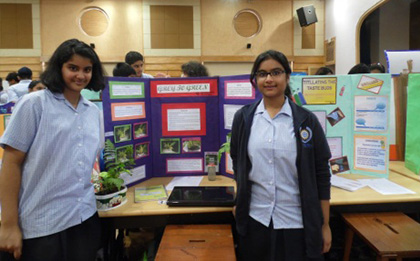
For the past 8 years, our school has held a science fair for the students of 7th, 8th and 9th standards. All students form teams of 2 and start working on their project towards the end of May. We are given circa three months to work on our projects during which we prepare our project using the proper scientific method. We had made sure that the format of our projects adhered strictly to IRIS and ISEF guidelines, the International bodies responsible for science Fairs. All our efforts culminated on 3rd August, the day of our science fair, held in our school auditorium where all projects had been set up the previous day.
Our chief judges were Dr. Kishore Amin, a scientist at the Tata Memorial Hospital and a member of the scientific review committee and Ms. Sharon Kumar, who has been actively involved with IRIS to support the INTEL Education Initiative in India. They saw all of our projects and gave us encouraging advice. Each project was judged by science teachers according to fixed guidelines.
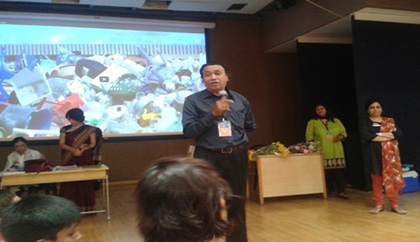
The auditorium was a vibrant medley of project boards of different shapes, sizes, colours and some of the projects had eye-catching models to facilitate a more methodical explanation for their project. Usually, the best projects are recommended by the judges to participate in IRIS (the national level science fair), but as all projects were of a superior quality, the judges told us that all 133 projects were suitable for IRIS!
Of course all student effort would not have a complete success without the inspiration and support that we had from faculty and administrative staff, respectively. The invaluable advice by our judges will be valued by all students.
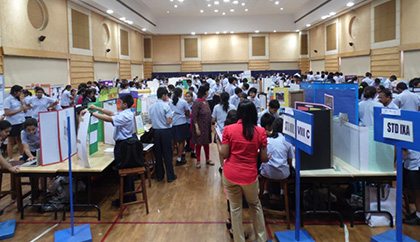
RESULTS
7th grade
|
Name |
Project |
|---|---|---|
1st position |
Malhar Acharya & Aryamaan Singhania |
Biomimicry |
2nd position |
Tanisha Jhaveri & Aditi Raheja |
Swing into a green India |
|
Janavi Kadhiravan & Shianne Reporter |
Bricks and Cement : Briment |
3rd position |
Navadha Malpani & Riya Sankhe |
Natural Remedy for Blood Pressure |
Commendations |
Akanksha Sinha& Yajurvi Haritwal |
Fertility of Volcanic Soil |
Annika Chauhan & Raashi Shah |
Are Diabetic Biscuits actually healthy? |
|
Sarah Kagzi & Adrija Misra |
Data analysis for health emergencies |
|
|
Ishita Bagri & Jahnavi Mehta |
How does the colour of a house affect its electricitybill? |
|
Nayantara Batra & Isha Valia |
Hydrogen Fuel Cell |
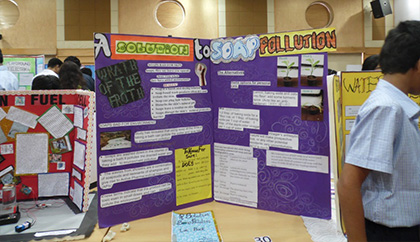
8th grade
|
Name |
Project |
|---|---|---|
1st position |
Hitansh Doshi & Bhaven Shah |
Drowning not allowed |
2nd position |
Anuj Shah & Rushill Shah |
Cartridge Management |
3rd position |
Navya Mehta & Jash Shah |
Playground D' Electrika |
Commendations |
Avi Anurag & Varun Parkash |
Computer Vision Syndrome |
Avantika Tibrewala & Saachi Munot |
Effect of red colour on heart rate |
|
Sunaina Chatterjee & Anandita Singh |
Vitamin C content in orange juice |
|
|
Abhimanyu P. S & Dhruv Sheth |
ETOU |
9th grade
|
Name |
Project |
|---|---|---|
1st position |
Zaara Arsiwala & Ananya Kamdar |
The Miracle Tree 'Moringa' |
2nd position |
Arnav Parikh & Ashutosh Bajpai |
Running lights will soon be a thing of the past |
3rd position |
Aman Gupta & Aman Nathani |
Reducing carcinogens in chicken |
Commendations |
Esha Gupta & Siya Chandrie |
Aquaponics |
Shaurya Garg & Aryan Eshwaran |
Roads of plastic |
|
Raghav Chaturvedi & Ramya Chaturvedi |
Paper as fertilizer |
|
|
Aryan Biyani & Mudit Dani |
Impact of Bio- Boosters on Table Tennis rackets |
